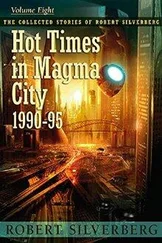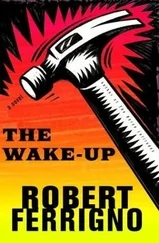“‘The Zionist Betrayal was the pivot point of modern history, the axis on which the world shifted. The story is taught to every schoolchild, marked by a moment of silence at noon on the anniversary of the attack. We all know that on that terrible day, renegade elements of the Israeli government struck targets in the United States, and the holy city of Mecca, attempting to blame the actions on radical jihadis and discredit all of Islam. We all know that their plan was discovered, Israel itself overrun, while the forces of Islam spread their beneficence across the globe. And yet…what if all that we know of these attacks was wrong? What if the Zionists were not behind the Zionist Betrayal?’”
Rakkim shrugged. “I’ve heard dozens of conspiracy theories about the Zionist attack. Did she have any evidence?”
“The book’s unfinished, and I was just able to retrieve bits of it, but her conclusion is obvious. The Zionist Betrayal was another blood libel against the Jews. The worst yet.”
“Obvious to you. No evidence, but the Jews are innocent. How convenient.” Rakkim saw he had hurt the man’s feelings. “Who did Sarah think was really behind the attacks?”
“Her r-r-research,” Spider stuttered, “her research wasn’t definitive. She mentions an unnamed Saudi or a Yemeni…maybe a Pakistani. He’s referred to usually as the Old One. She doesn’t even know if he’s still alive. He was evidently in his sixties at the time of the attack, which would make him in his nineties today, but-”
“The terrorists confessed. They were born and raised and trained in Israel, and they confessed on live TV. You’ve seen it. The whole world has seen it.”
“The man works on an incredibly long-range time frame. He must have spent twenty or thirty years putting the operation into place.” Spider’s hands flapped from the sleeves of his pajamas. “According to Sarah, he seeded his operatives into Israel as Jewish immigrants. It was the children of these deep sleepers, raised and educated in Israel, who rose within the political and military establishment-”
“The terrorists were executed. You think their parents raised them, loved them, knowing the whole time they were going to be sacrificed? And the children agreed?”
“I know, I know, but the Old One occupied some sort of cultural and religious sweet spot. The devotion he inspired…” Spider’s fingers wriggled. “He’s taken on the mantle of a Muslim figure of antiquity, the old man of the mountains, an eleventh-century mystic-”
“Yeah, Hassan-i-Sabah. I’ve read the story. He supposedly inspired such loyalty that his followers willingly threw themselves off cliffs if he merely beckoned.”
“The stories are true. Hassan-i-Sabah believed that God had anointed him to unite all Muslims, and he acted on that belief. His acolytes assassinated dozens of Muslim monarchs in his day, including the caliph of Baghdad.”
Rakkim remained skeptical. “So the Jews are blamed for the attacks, and Damon Kingsley becomes president-for-life of the new Islamic Republic. You think he was part of the deception? Sorry, but Kingsley is no extremist.”
“Yes, Kingsley is a moderate, a grave sin to a true believer. In fact, if the Old One is anything like the original old man of the mountains, he’s as hostile to other Muslims as he is to Jews. Kingsley’s election means that the Old One didn’t completely achieve his goal.” Spider twitched. “But that doesn’t mean the plan isn’t still going forward, whether or not the Old One is still alive.”
“Why didn’t Sarah tell Redbeard about this?”
“Maybe she didn’t trust him to help her…or maybe she knew he didn’t have the power to do anything about it.” Spider blinked. “I cracked the congressional budget code eight years ago. Follow the money, and you’ll find the truth.” He blinked faster. “In the last three years, Redbeard’s budget has been cut forty percent. Recruitment and training have been crippled. The money is going to the army and the religious authorities…Fedayeen, of course. No one outside the Select Committee knows. I thought it was the Black Robes outmaneuvering him with Congress. Now I wonder.”
“You see a lot from bits and pieces.”
“That’s what I do. That’s what you do too, Fedayeen.” Spider watched Rakkim trying to process the new information. “Hard work to reimagine the world, isn’t it? It’s kept me busy too.” He handed Rakkim a flash-memory wafer. “This is everything I pulled off the core so far.”
Rakkim slid the wafer into the port of his watch. “Who contacted Sarah at the Mecca Café? Did you find out who she’s working with?”
Spider shook his head. “It was sent through a feed in Las Vegas, but that doesn’t help. Vegas is a hub. There are so many satellite uplinks over that city that the sender could be anywhere in the world.” A baby was crying again. “So many of us killed. Homes burned. Businesses looted. Civil war…and it was all a lie.” His tics were like mild electric shocks. “You were lucky, Rakkim. Being an orphan allows for certain…opportunities.”
“What’s that supposed to mean?”
“All those records lost during the transition. Databases infected…I couldn’t find you anywhere. Just another displaced person. Who could blame you for rewriting your own history?”
“I’m a Muslim.”
“A Muslim who risks his life to save Jews? I’ve never met such a creature.”
“Jews and homosexuals, apostates and witches too-I’ve led them all to the promised land. Does that make me Moses?”
“It makes you too good to be true.”
Rakkim ignored it. “Any mention of China on the core? Or the Three Gorges Dam?”
“No, why?”
“How much do I owe you?”
“We’ll settle when I’m done.” Spider’s expression smoothed out. Serene almost. “What did you think of my daughter?”
“Carla? She seemed…” Rakkim laughed. “I wondered why you didn’t just have Elroy bring me here right off. I didn’t need to go to the restaurant. You could have told me everything she did. I’m flattered, Spider, but you didn’t need to run your daughter past for my approval-”
“Your approval?” Spider’s face crinkled with restrained laughter. “I sent you to the restaurant to see if you met with her approval.”
“She can do better.” Rakkim stood up. “Ask Elroy to take me back.” He didn’t need help, but there was no need to advertise it. “Keep working on the core.”
“Shalom, Rakkim.”
“Salaam alaikum.”
Dawn prayers
Rakkim used the call to prayer to hurry past the No Admittance sign to the upper level of the House of Martyrs War Museum. The uniformed army sergeant at the top of the stairs was busy with his prayer mat-Rakkim stayed at the edges of the guard’s peripheral vision, silently mirroring the man’s posture as he slipped past. Fedayeen training, shadow warrior training, the closest thing to invisibility. Rakkim could walk through a crowd of devout women, barely grazing their chadors, and if questioned afterward, none of them would remember him, they would merely have a fleeting impression of someone urging them forward, a nagging sense that they were late to mosque. He could trudge along with a flood of coal miners in the Bible Belt, part of the conversation and the weariness, until a grimy peckerwood looked around and the man he had been talking to about the price of hogs would be gone. Shadow warrior training.
“In the name of Allah.” The collective whisper…“In the name of Allah.” From the balcony, Rakkim could see the early-morning visitors lined up on their mats below, beginning their ablutions. The air in the museum was purified; according to the grand mufti, believers were not required to perform ritual cleansing with water. Most still followed the proper forms, rubbing their hands, then mouth, nose, face, ears, forehead, head, and feet in the sanctified atmosphere. Finished, they stood in neat rows, hands raised to the level of the face. Men in front. Women behind them. Modesty and subordination, moderns and moderates and fundamentalists, wheels within wheels before Allah. Rakkim watched, calmed by the rhythmic movements of their devotions. Bowing forward from the waist, hands resting on their knees. Prostrate, hands flat, foreheads grazing the mat. Returning to the upright position, to start the process again and again, to finally end seated on their heels.
Читать дальше












